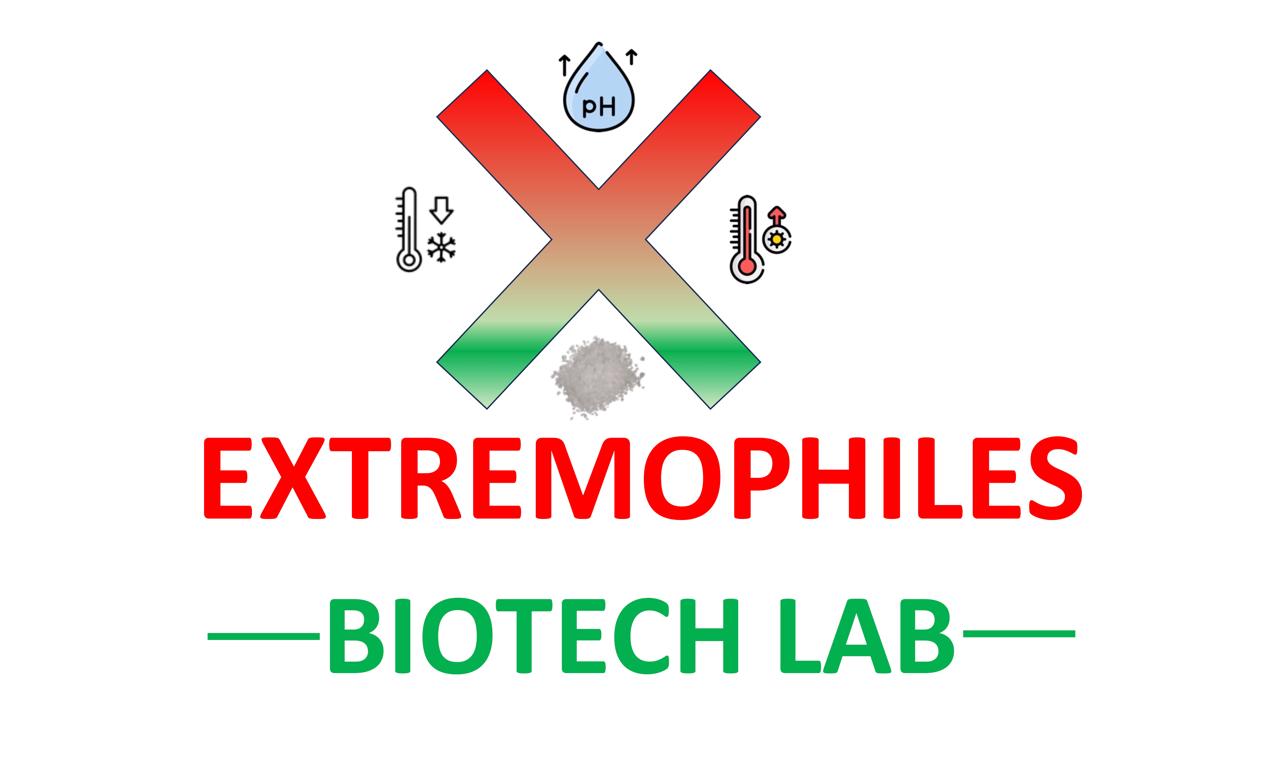PATENTS
- Capturing and converting CO2 into biodegradable bioplastic (United States patent and trademark office (USPTO), WO/2019/193518, international application no. PCT/IB2019/052735
- Air-loaded vesicle nanoparticles promote cell growth in 3D bioprinted tissue constructs, WO 2022/049494 A1, international application no. PCT/IB2021/057973.
- Vaccination by heterologous boost immunization, WO-2022/115471-A1.
PUBLICATIONS (International Journals) PUBLICATIONS (International Journals)
- R. Karan*, D. Renn, S. Nozue, L. Zhao, S. Habuchi, T. Allers, M. Rueping (2023) Bioengineering of air-filled protein nanoparticles by genetic and chemical functionalization. J. Nanobiotechnology 21(1):108. *Corresponding author. https://doi.org/10.1186/s12951-023-01866-7
- S. Alshehri∞, R. Karan∞, S. Ghalayini, K. Kahin1, Z. Khan, D. Renn, S. Mathew, M. Rueping, C.A.E. Hauser (2022) Air-loaded gas vesicle nanoparticles promote cell growth in 3D bioprinted tissue constructs. Int. J. Bioprint. 8(3):489. ∞contributed equally.
- https://doi.org/10.18063%2Fijb.v8i3.489
- M. Sysoev, S.W. Grötzinger, D. Renn, J. Eppinger, M. Rueping, R. Karan* (2021) Bioprospecting of novel extremozymes from prokaryotes – The advent of culture-independent methods. Front. Microbiol. 12: 630013 (highly accessed). *Corresponding author.
- https://doi.org/10.3389/fmicb.2021.630013
- D. Renn, L. Shepard, A. Vancea, R. Karan, S.T. Arold, M Rueping (2021) Novel enzymes from the Red Sea brine pools: Current state and potential Frontiers in Microbiology. Front. Microbiol. 12: 732856. https://doi.org/10.3389/fmicb.2021.732856
- R. Karan*, Sam Mathew, Reyhan Muhammad, Didier B. Bautista, Malvina Vogler, Jörg Eppinger, Romina Oliva, Luigi Cavallo, Stefan T. Arold, Magnus Rueping (2020) Understanding high-salt and cold adaptation of a polyextremophilic enzyme. Microorganisms 8(10), 1594 (highly accessed). *Corresponding author https://doi.org/10.3390/microorganisms8101594
- M. Voglar∞, R. Karan∞*, D. Renn, Groll, A. Vancea, M. Vielberg, S.W. Grötzinger, P. DasSarma, S. DasSarma, J. Eppinger, M. Groll, M. Rueping (2020) Crystal structure and function of carbonic anhydrase from Red sea brine pools. Front. Microbiol. 11: 742. ∞contributed equally *Corresponding author. https://doi.org/10.3389/fmicb.2020.00742
- A. Hohl∞, R. Karan*∞, A. Akal, D. Renn, X. Liu, A. Dharmarajnadar, S. Ghorpade, M. Groll, J. Eppinger, M. Rueping (2019) Engineering a promiscuous pyrrolysyl-tRNA synthetase by a high throughput FACS screen. Nature Sci. Rep. 9(1):11971 ∞contributed equally *Corresponding author. https://doi.org/10.1038/s41598-019-48357-0
- A. Hohl, Y. G Mideksa, R. Karan, et al. (2019) Genetically encoded biotin analogs: Incorporation and application in bacterial and mammalian cells. ChemBioChem 20(14):1795-1798. https://doi.org/10.1002/cbic.201900015
- A.L. Akal, R. Karan, A. Hohl, I. Alam, M. Vogler, S.W. Grötzinger, J. Eppinger, M. Rueping (2019) A polyextremophilic alcohol dehydrogenase from the Atlantis II Deep Red Sea brine pool. FEBS Open Bio. 9(2): 194–205 (Featured article on the cover page of the journal). https://doi.org/10.1002/2211-5463.12557
- I.S. Al-Rowaihi, A. Paillier, S. Rasul, R. Karan, R. Laamarti, S.W. Grötzinger, K. Takanabe, J. Eppinger (2018) Poly(3-hydroxybutyrate) production in an integrated electromicrobial setup: Investigation under stress-inducing conditions. PLoS One. 13(4): e0196079.
- https://doi.org/10.1371/journal.pone.0196079
- I.S. Al-Rowaihi1, B. Kick, S.W. Grötzinger, C. Burger, R. Karan, D. Weuster-Botz, S.T. Arold, J. Eppinger (2018) A two-stage biological gas to liquid transfer process to convert carbon dioxide into bioplastic. Bioresour. Technol. Rep. 1, 61-68. https://doi.org/10.1016/j.biteb.2018.02.007
- S.W. Grötzinger, R Karan, E. Strillinger, S. Bader, A. Frank et al. (2017) Identification and experimental characterization of an extremophilic brine pool alcohol dehydrogenase from single amplified genomes. A.C.S. Chem. Biol. 13(1): 161-170.
- https://doi.org/10.1021/acschembio.7b00792
- V.J Laye, R Karan, J.M. Kim, W.T. Pecher, P. DasSarma, S. DasSarma (2017) Key amino acid residues conferring enhanced enzyme activity at cold temperatures in an Antarctic polyextremophilic β-galactosidase. Proc. Natl. Acad. Sci. U.S.A. 114(47):12530-12535. https://doi.org/10.1073/pnas.1711542114
- A.U. Andar∞, R. Karan∞, W.T. Pecher, P. DasSarma, W.D. Hedrich, A.L. Stinchcomb, S. DasSarma (2017) Microneedle-Assisted Skin Permeation by Non-toxic Bioengineerable Gas Vesicle Nanoparticles. A.C.S. Mol. Pharm. 14(3):953-958. ∞contributed equally. https://doi.org/10.1021/acs.molpharmaceut.6b00859
- W.T. Pecher, J-M Kim, P. DasSarma, R. Karan, P. Sinnis, S. DasSarma (2016) Halobacterium expression system for production of full-length Plasmodium falciparum protein. Biotech. Extrem. 699-709. https://doi.org/10.1007/978-3-319-13521-2_25
- S DasSarma, P DasSarma, W Pecher, R Karan, JM Kim (2016) Gas vesicle nanoparticles: Composition, biogenesis, and therapeutic applications. Protein Science 25, 55-56.
- R. Karan, P. DasSarma, E. Balcer-Kubiczek, R.R. Weng, C. Liao, W.V. Ng, S. DasSarma (2014) Bioengineering radioresistance by overproduction of R.P.A., a mammalian-type single-stranded DNA-binding protein, in a halophilic archaeon. Appl. Microbiol. Biotechnol. 98(4):1737-1747. https://doi.org/10.1007/s00253-013-5368-x
- P. DasSarma, V.D. Negi, A. Balakrishnan, R. Karan, S. Barnes, F. Ekulona, D. Chakravortty, S. DasSarma (2014) Haloarchaeal gas vesicle nanoparticles displaying Salmonella SopB antigen reduce bacterial burden when administered with live attenuated bacteria. Vaccine. 32(35):4543-4549. https://doi.org/10.1016/j.vaccine.2014.06.021
- S. DasSarma, R. Karan, P. DasSarma, S. Barnes, F. Ekulona, B. Smith (2013) An improved genetic system for bioengineering buoyant gas vesicle nanoparticles from Haloarchaea. B.M.C. Biotechnol. 13:112 (highly accessed). https://doi.org/10.1186/1472-6750-13-112
- R. Karan, M.D. Capes, P. DasSarma, S. DasSarma (2013) Cloning, overexpression, purification, and characterization of a polyextremophilic β-galactosidase from the Antarctic haloarchaeon Halorubrum lacusprofundi. B.M.C. Biotechnol. 13:3 (highly accessed).
- https://doi.org/10.1186/1472-6750-13-3
- S. DasSarma, M.D. Capes, R. Karan, P. DasSarma (2013) Amino acid substitutions in cold-adapted proteins from Halorubrum lacusprofundi, an extremely halophilic microbe from antarctica. PLoS One. 8(3):e58587. https://doi.org/10.1371/journal.pone.0058587
- R. Karan, M.D. Capes, S. DasSarma (2012) Function and biotechnology of extremophilic enzymes in low water activity. Aquat. Biosyst. 8(1):4 (highly accessed). https://doi.org/10.1186/2046-9063-8-4
- S. Kumar, R. Karan, S. Kapoor, S.P. Singh, S.K. Khare (2012) Screening and isolation of halophilic bacteria producing industrially important enzymes. Braz. J. Microbiol. vol.43 no.4 (highly accessed). https://doi.org/10.1590/S1517-83822012000400044
- R. Karan, S. Kumar, R. Sinha, S.K. Khare (2012) Haolphilic microorganisms as sources of novel enzymes, in Microbes in environmental management and biotechnology. Microorganisms in Sustainable Agriculture and Biotechnology. Springer, pp 555-579. https://doi.org/10.1007/978-94-007-2214-9_25
- R. Karan and S.K. Khare (2011) Stability of haloalkaliphilic Geomicrobium sp. protease modulated by salt. Biochemistry (Moscow). 76 (6) 686-693.
- https://doi.org/10.1134/S0006297911060095
- R. Karan, R.K.M. Singh, S. Kapoor, S.K. Khare (2011) Gene identification and molecular characterization of solvent stable protease from a moderately haloalkaliphilic bacterium Geomicrobium sp. EMB2. J Microbiol. Biotechnol. 21, 129-135 (Featured article on the cover page of the journal). DOI: 10.4014/jmb.1007.07064
- R. Sinha, R. Karan, A. Sinha, S.K. Khare (2011) Interaction and nanotoxic effect of ZnO and Ag nanoparticles on mesophilic and halophilic bacterial cells. Bioresource Technol. 102, 1516-20. http://dx.doi.org/10.1016/j.biortech.2010.07.117
- R. Karan, S.P. Singh, S. Kapoor, S.K. Khare (2011) A novel organic solvent tolerant protease from a newly isolated Geomicrobium sp. EMB2 (MTCC 10310): Production optimization by response surface methodology. N. Biotechnol. 28, 136-145. https://doi.org/10.1016/j.nbt.2010.10.007
- R. Karan and S.K. Khare (2010) Purification and characterization of a solvent stable protease from Geomicrobium sp. EMB2. Special issue on “Extremophiles: a source of innovation for industrial and environmental applications” Environ. Technol. 10, 1061-1072.
- https://doi.org/10.1080/09593331003674556
- Sumit Kumar, R. Karan, S.K. Khare (2009) Solvent-tolerant microorganisms: an emerging source of novel enzymes. Biotech. International. 21: 6-8.
National Journal
- R. Khurana R. Karan, A. Kumar, S.K. Khare (2010) Antioxidant and antimicrobial activities in some Indian herbal plants: Protective effect against free radical-mediated D.N.A. damage. J. Plant. Bioch. Biotech. 19(2), 229-233. https://doi.org/10.1007/BF03263345
Under submission
- R. Karan*, D. Renn, T. Allers, M. Rueping (2023) Systematic screening of purification tags in haloarchaeal expression system. Microb. Cell Factories *Corresponding author.
- D. Renn, L. Shepard, R. Karan*, M. Rueping (2023) Tailored design of gas vesicle nanoparticles: Opportunities and Challenges. Front. Bioeng. Biotechnol. *Corresponding author.
- R. Karan*, T. Allers, M. Rueping (2023) Proteosome and haloaraceal expression system. Protein Science *Corresponding author.
PROCEEDINGS/INTERNATIONAL CONFERENCES
- R. Karan et al. (2022) Extremophiles: Superheroes of sustainability and link between Earth and astrobiology. International Conference on Environmental Sustainability & Biotechnology: Opportunities & Challenges (ICESB22, 16-20 Nov.), Goa, India.
- R. Karan et al. (2022) Poly-extreme environments: promising sources of novel enzymes for sustainability. Extremophiles2022 (18-22 Sep.), Loutraki, Greece.
- R. Karan et al. (2022) Polyextremophilic enzymes from Red Sea Brine Pools and Deep Lake of Antarctica. Halophiles2022 (26-29 June), Alicante, Spain.
- R. Karan (2021) Living on other planets: What would it be like? International Virtual Conference on “Living with Ecological Prosperity: lifestyle, Economy, Environment and Sustainability” the University of Delhi, Delhi, India, in association with the Department of Botany, MLS University, Udaipur, Rajasthan, India, and Young Social Scientists Association of India on 10-11 July 2021.
- R. Karan (2020) Extremophiles: Superheroes of Tomorrow. International Conference on Recent Trends in Advancement of Mathematical and Physical Sciences, organized by Deva Nagri College, Meerut (C.C.S. University, Meerut), Uttar Pradesh, India on 22-23 May 2020 (Invited Talk-Lead speaker).
- R. Karan et al. (2019) Extremophiles and extremozymes: Biotechnology and engineering stress tolerance. GINMA2019 (6-8 Nov), Hisar, India (Invited Talk-Lead speaker).
- R. Karan et al. (2019) Halo-thermophilic Brine Pool Extremozymes from Single Amplified Genomes. Thermophiles2019 (02-06 Sep), Fukuoka, Japan. *Won Young Scientist Award.
- R. Karan et al. (2019) Single amplified genomes from Red Sea brine pool extremophiles – a source of novel enzymes. Halophiles2019 (22-28 June), Cluj-Napoca, Romania.
- R. Karan et al. (2018) Identification, expression, purification, and characterization of Red Sea brine pools extremozymes from single amplified genomes. Extremophiles2018 (16-20 Sep 2018), Naples, Italy. *Won the best research and best presentation award.
- R. Karan et al. (2016) Bioengineering novel floating nanoparticles for protein and drug delivery. Materials Today: Proceedings 3(2) 206-210.
- R. Karan et al. (2015) Haloarchaeal gas vesicle nanoparticles displaying Salmonella antigens as a novel approach to vaccine development. Procedia in Vaccinology Volume 9, Pages 16–23.
- R. Karan et al. (2013) Understanding protein function and adaptation in haloarchaea through bioinformatic and experimental approaches. Halophiles 2013 (23-27 June), University of Connecticut Storrs, CT, USA.
- R. Karan et al (2012) Molecular mechanisms of radiation tolerance of Haloarchaea: A case for panspermia? Astrobiology Science Conference 2012 (16-20 April), Exploring Life: Past and Present, Near and Far. Organized by NASA in Atlanta, Georgia.
- R. Karan and S.K. Khare (2010) Molecular characterization of a solvent stable protease from a moderately haloalkaliphilic Geomicrobium sp. EMB2. Halophiles2010 (29 June-03 July) Beijing, China.
- R. Karan et al. (2008) Extracellular alkaline amylase from a haloalkaliphilic bacterium isolated from Sambhar Lake, Rajasthan: Production and optimization. International Symposium on Microbial Biotechnology: Diversity, Genomics, and Metagenomics, 18-20 Nov 2008, Delhi, India.
- R. Karan and S.K. Khare (2006) Enzymatic diversity among halophilic bacteria isolated from the seacoast of Saurashtra. Society of Biological Chemists (India), 8-11 December 2006 at JNU, New Delhi.
MEMBERSHIP IN PROFESSIONAL SOCIETIES
- Member, American Society of Microbiology (ASM), USA
- Life member, Biotech Research Society of India (BRSI)
- Life member, Asian Federation of Biotechnology (AFOB)
ASSOCIATE/GUEST EDITOR OF INTERNATIONAL JOURNALS
Environmental Sustainability, 2. Microbial Biotechnology, 3. International Journal of Microbiology and Biotechnology, 4. Frontiers in Microbiology
PEER REVIEW SERVICE
Review editor: Frontiers in Bioengineering and Biotechnology, Extremophiles, Process Biochemistry, FEMS Microbiology, International Journal of Applied Sciences and Biotechnology, Preparative Biochemistry and Biotechnology, Enzyme Engineering, Evidence-Based Complementary and Alternative Medicine, National Academy Science Letters, Basic Microbiology, 3Biotech, Catalysis, Microorganism, Fermentation, Journal of Microbiology, Environmental Microbiology, Frontiers in Environmental Science, Applied Microbiology and Biotechnology, Biomass Conversion and Biorefinery, Bioprocess Engineering, Cells



